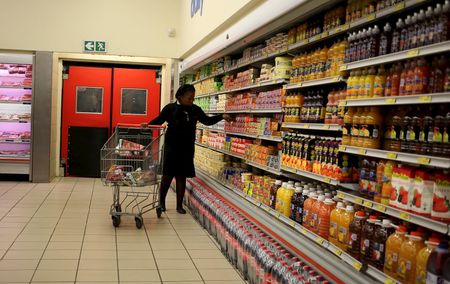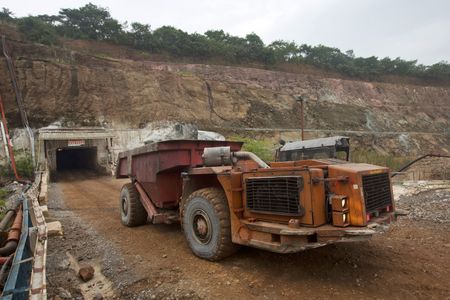By Samuel Indyk and Koh Gui Qing
NEW YORK/LONDON (Reuters) -Global shares rose on Wednesday, powered by a rise in technology stocks after U.S. President Donald Trump announced mammoth spending plans for artificial intelligence infrastructure, while the dollar sagged to a two-week low as tariffs were delayed.
Late on Tuesday, Trump announced that OpenAI, SoftBank and Oracle will form a joint venture and invest up to $500 billion to build data AI centers.
Shares of SoftBank surged 10.6% in Tokyo, while Oracle gained 7.1% on Wall Street, adding to the previous day’s 7.2% jump.
That helped lift the tech-heavy Nasdaq 1.3%. The benchmark S&P 500 rose 0.7%, and the Dow Jones Industrial Average added 0.2%. The MSCI index of world shares rose 0.5%.
Even with global stock markets near record highs, some investors said they could rise further.
“We prefer taking risk in stocks and expect corporate earnings to keep driving returns as the fourth-quarter reporting season starts,” Jean Boivin, the head of BlackRock Investment Institute said, adding that Treasury yields might jump.
“We are in a world of higher interest rates and expect them to stay above pre-pandemic levels. Even with the jump in yields, we still see more room to run, if at a slower pace,” Boivin said.
The benchmark 10-year Treasury yield rose 2 basis points to 4.5820%.
European shares were higher despite threats of U.S. import tariffs, with Trump again vowing to hit the European Union with fresh levies. But Europe was breathing a sigh of relief as many investors and foreign capitals had expected tariffs to be implemented on Trump’s first day in office, as promised during his campaign.
“Trump seems more focused at home and Europe’s got a stay of execution,” said Eddie Kennedy, head of bespoke discretionary fund management at Marlborough.
“Therefore, I think it makes sense to have a little rally.”
The pan-continental STOXX 600 were up 0.3% after hitting a record intraday high. Blue-chips in Frankfurt and London also hit new intraday peaks before pulling back.
Europe’s infrastructure stocks, such as Schneider Electric and Prysmian, were some of the outperformers on Trump’s AI investment push.
Investment in AI has surged since OpenAI launched ChatGPT in late 2022, lifting share prices of chipmakers and those building the infrastructure, helping drive gains in the broader market.
In Asia, Japan’s Nikkei 225 rose 1.6%, lifted by the near 11% rise in SoftBank shares.
MSCI’s broadest index of Asia-Pacific shares outside Japan, however, were flat as drops in Chinese and Hong Kong stocks offset broad gains elsewhere.
Trump said his administration was considering a 10% punitive duty on Chinese imports because fentanyl is being sent from China to the U.S. via Mexico and Canada.
Chinese blue chips fell 0.9% and Hong Kong’s Hang Seng index lost 1.6%.
DOLLAR DROPS TO TWO-WEEK LOW
The delay by Trump in imposing tariffs on major economies has pushed the dollar to a two-week low against a basket of currencies.
The U.S. dollar index, which measures the currency against six others, was little changed at 108.16, having earlier fallen to its lowest since Jan. 6 at 107.75.
The dollar “sold off in response to the lack of clear Day 1 tariffs news, though it’s difficult to separate out how much of that move is a partial unwind of dollar-long positioning, and how much is a more durable market reassessment of tariff risks,” said Stuart Jenkins, FX strategist at Goldman Sachs.
The euro flat at $1.042100, having earlier risen to $1.0457, its highest since Dec. 30.
The dollar was up 0.6% at 156.38 yen after falling to a one-month low in the previous session.
The Japanese currency has strengthened against the dollar in recent sessions, supported by growing expectations the Bank of Japan will raise interest rates at its policy meeting on Friday.
In commodities, oil prices were slightly lower, having fallen more than 2% on Tuesday on Trump’s plans to boost U.S. energy production. Brent crude was down 0.2% at $79.09 a barrel, while U.S. crude was 0.3% at $75.59.
Spot gold added 0.4% to $2,756.3 per ounce, having earlier hit its highest level since October.
(Reporting by Samuel Indyk; Editing by Jan Harvey and Nick Zieminski)









